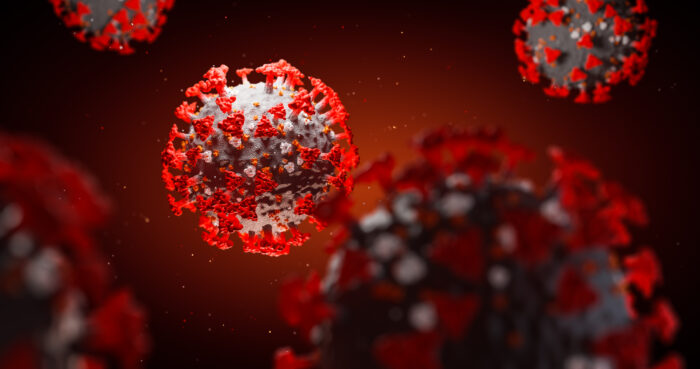
Two weeks ago, the first known case of a more contagious coronavirus strain was identified in Colorado’s eastern plains. Called B.1.1.7, the strain was first identified in the U.K and is thought to be 50% to 70% more transmissible.
Dozens of cases of the variant have since been identified in San Diego and six other states. Most were not tied to travel, indicating that this variant was already spreading in communities.

What’s Keeping Healthcare CIOs Up at Night: How Health Systems Automate Routine Phone Calls to Improve Workforce Effectiveness and Reduce Agent Burnout
With hospitals struggling to retain staff and value-based care shrinking healthcare revenues, health systems must look to technology resources to become more efficient, without losing sight of patient care or staff support.
Sequencing giant Illumina is working with Helix, which has been providing Covid-19 tests, and the Centers for Disease Control and Prevention to track the emergence of this B.1.1.7 strain. As of last week, the two companies had identified 51 cases in the U.S. They’re also on the lookout for another variant, called 501Y.V2, that was recently discovered by scientists in South Africa.
Despite its vast laboratory infrastructure, the U.S. has been lagging far behind other countries in sequencing cases for potential SARS-CoV-2 variants. For example, while the U.K. has sequenced roughly 7.4% of its cases, the U.S. has sequenced just 0.3%, according to the Washington Post.
Even as Illumina saw Australia, Singapore and other countries step up sequencing of the virus, “In our own home country, we don’t see it happening,” Illumina’s Chief Medical Officer Dr. Phil Febbo said in an interview. “We have been talking to HHS, the CDC, the DOD, multiple departments and agencies within the current government. But there was no national leadership.”
The discovery of the new variant has brought more urgency to that effort. Though mutations are expected, the concern is that a more contagious variant could drive more cases on top of the current surge. Last week, the U.S. reported more than 1.7 million new cases and 22,000 deaths from Covid-19.

Integrated Enrollment Platforms and Consumer Assistance Centers: The Strongest Advantage for State-Based Exchanges
In the ever-evolving landscape of state-based health insurance exchanges, the convergence of technology and customer service is reshaping how these exchanges operate. The increasing advent of automation and artificial intelligence (AI) is rapidly dismantling the traditional business model that relies on the siloing of technology and customer service centers.
To find a variant
In late December, the Centers for Disease Control and Prevention told laboratories to watch for a specific pattern in PCR testing that could be indicative of the B.1.1.7 variant — a mutation in the gene that codes for the virus’ spike protein. This yields a positive test, but without a result for the S gene, which researchers call an “S-gene dropout.”
Through its PCR tests, Helix identified samples with this feature and sent them, anonymized, to Illumina’s lab in San Diego for sequencing.
It’s not a universal tell, though. Febbo said researchers were finding B.1.1.7 in roughly 30% to 40% of samples with S-gene dropout. So, Illumina and Helix are also including tests that don’t include that feature in their sampling.
Identifying the 501.YV2 variant will be more challenging, because S-gene dropout can’t be used to flag potential cases.
“It requires a much more broad, systematic approach to genomic surveillance,” Febbo said.
As a vaccine is rolled out, testing and sequencing will still be an important part of the pandemic response. Febbo said that a group of commercial, academic and public health labs are willing to contribute to this effort. Labcorp was also recently awarded a contract by the CDC to study Covid-19 variants.
“I feel strongly that we need to do real-time genomic surveillance in the U.S. as part of ending this pandemic,” he said. “We’re in really dark times right now, but we will get through it.”
Photo credit: Maksim Tkachenko, Getty Images








